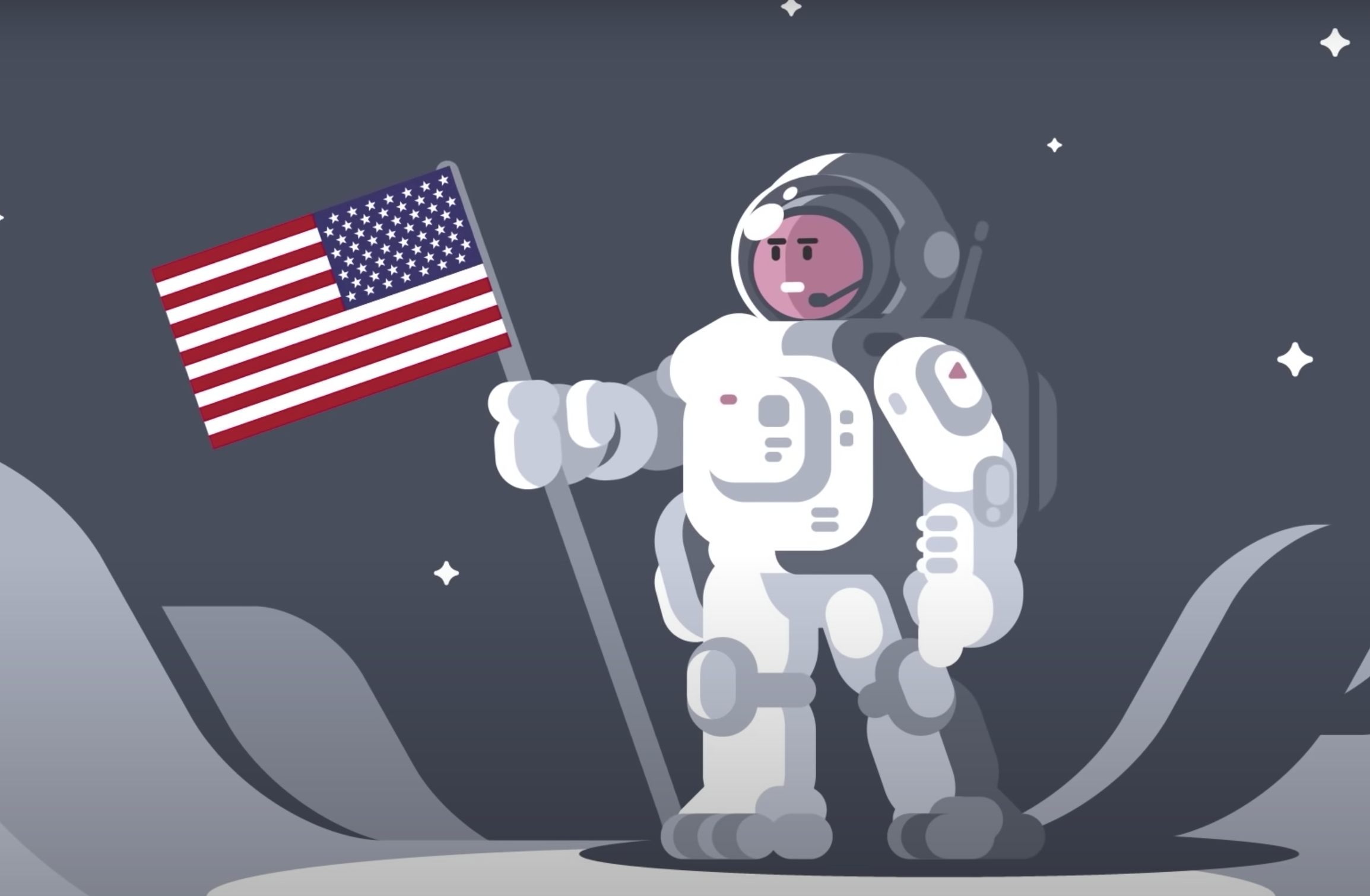When you’re popular, everyone likes to hate you- and if you’re American, then you must be ready to admit that throughout history the US has done things that deserve being hated for.
And if you’re not an American, then you must be ready to admit that throughout history the US has done things it deserves to be loved for.
Yet because the world’s sole superpower, the US’s influence spreads round the world, in both good and bad ways.
What would happen though if the US didn’t exist anymore, or a minimum of if its influence across the planet stage disappeared overnight?
World War II Ends during a Stalemate
Armchair historians like toshow that the instant Hitler invaded Russia, he was doomed to failure,
and thus, warfare II would have won the allies, even without the US.
Yet historical truth isn’t quite that straightforward.
Invading Russia was a critical mistake for Hitler, and one worsened when the US joined
the war reopened the Western front in Europe.
Yet what if the US had shrugged its shoulders when Russia and Britain begged it
to join the war effort?
Despite a superior fleet, Britain’s war material supply was running dangerously low even with constant American resupply efforts.
Without the US shipping war goods to Britain, the most effective that the uk could have done is to preclude a German invasion.
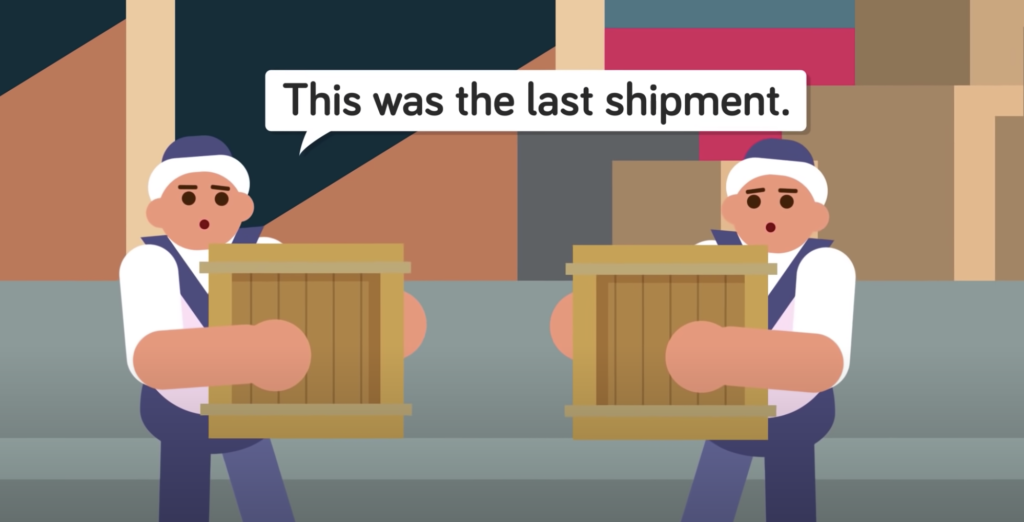
In war games dole outwithin the early 2000s by a British company, it absolutely was discovered
that Hitler could never have successfully overcome Britain’s fleets, the RAF, or the house Guard in a very cross-channel invasion- yet this simulation was undertaken with constant US resupply efforts underway.
Without those resupply efforts, a cross-channel invasion would probably still are disastrous
for Germany, on the other hand again Germany would have had no use to invade Britain without
the US supplying it.
A token defensive force could are left behind in France to discourage a British invasion and also the full might of the Wehrmacht could are dispatched to the eastern front.
Not just reviled as a madman and manslayer, Stalin was also famously a really poor strategic thinker.
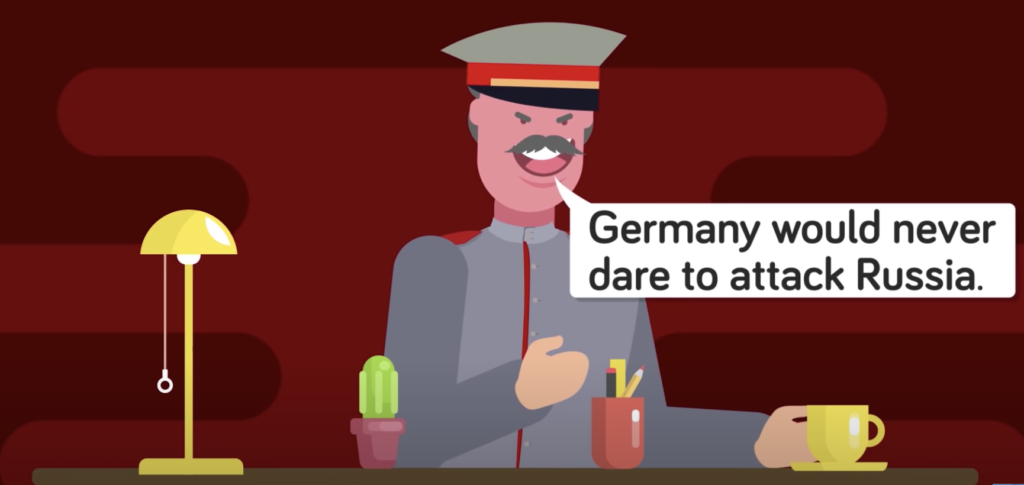
He was so surprised by Hitler’s invasion that within the years leading up thereto he had taken
almost zero precautions against German hostility.
To make matters worse, his political purges before war II had decimated the ranks
of the Red Army, and eliminated most of its experienced commanders.
Despite having exponentially greater numbers and firepower advantage within the Winter War of 1939 against Finland, the smaller and far more poorly equipped Finnish army managed
to decimate the Red Army before overwhelming numbers alone forced a defeat.
By the time of Hitler’s invasion of the state, little had improved within the Red Army within the way of command and control, logistical support, or maybe training.
When Hitler invaded, his troops quickly seized many of the Soviet Union’s agricultural regions,
leaving the state to face mass starvation- if it hadn’t been for the US’s lend-lease aid program to the wartime allies.
Providing food, raw materials, tanks, planes, ammunition, clothing, and everything in between,
the us provided critical aid to the USSR in its most desperate hour.
American raw materials fueled Soviet factories that churned out tanks and thousands of Studebaker
trucks helped move goods round the nation and its troops to the front lines.
Warm winter clothing kept Soviet soldiers from freezing to death, and American rations fed both soldiers and civilians alike.
As Soviet General Georgy Zhukov said after war II:
“We didn’t have explosives, gunpowder.
We didn’t have anything to charge our rifle cartridges with.
The Americans saved us with their gunpowder and explosives.
And how much sheet steel they gave us!
How could we’ve produced our tanks without American steel?
But now they create it seem as if we had an abundance of all that.
Without American trucks, we wouldn’t have had anything to drag our artillery with.”
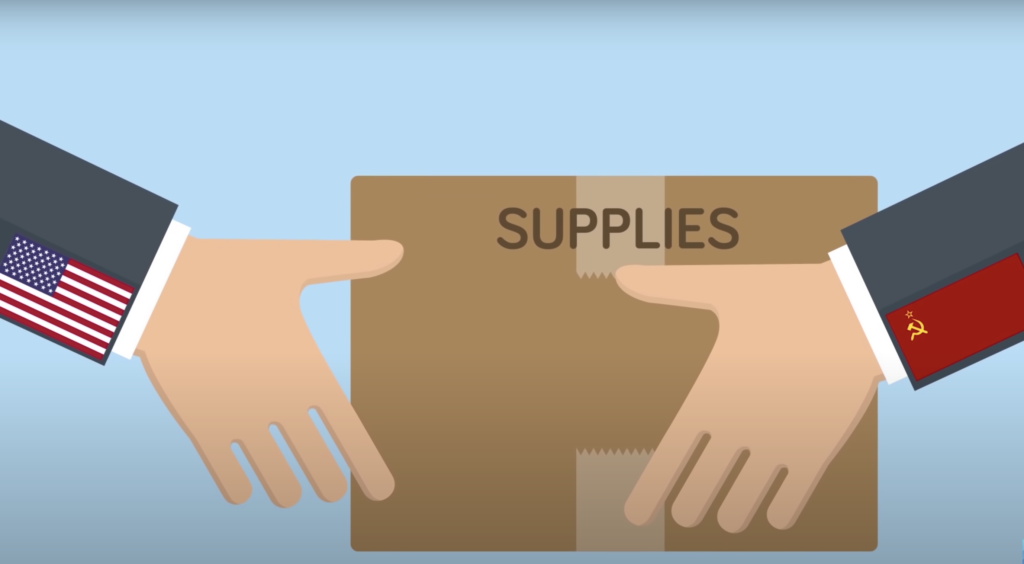
Immediately after the invasion of the Soviet Union, the United States gave
the nation an interest-free loan of $ 1 billion – or about $17.5 billion in today’s dollars- worth of supplies and raw materials.
The United Kingdom was also given an initial lease of between 40 and 50 destroyers.
Per the terms of Lend-Lease, the materials were lent for the duration of the war and expected to be returned or reimbursed only upon the war’s end if they were kept for civilian use.
Any combat losses would not be expected to be repaid.
The US lent the allies surplus military equipment under the condition that it did don’t have to be repaid for that equipment unless it was kept after the war was over.
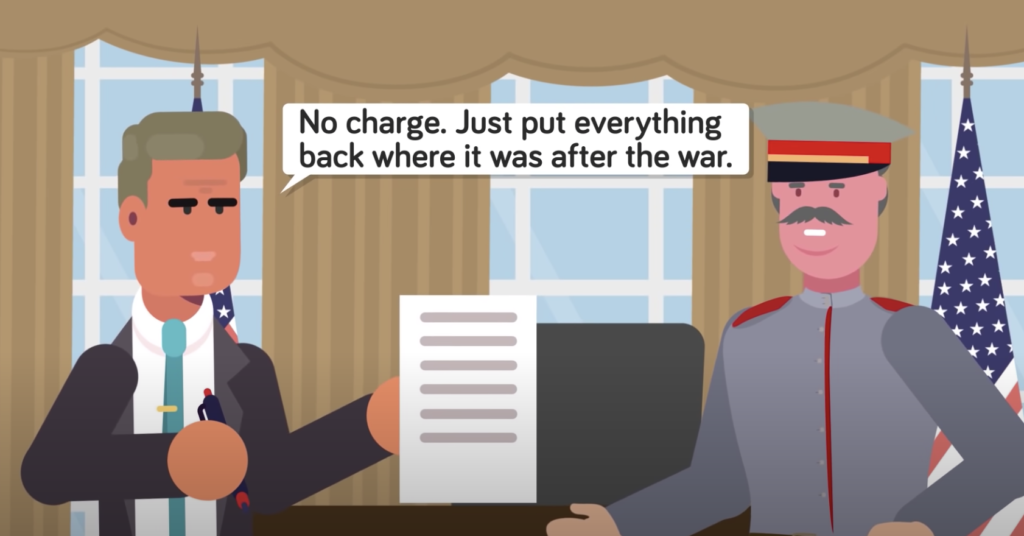
In total, the US gave the Soviet Union 44,000 jeeps, 375,883 trucks, 8,071 tractors, 12,700 tanks, 1,541,590 blankets, 331,066 liters of alcohol, 15,417,000 pairs of military boots, 06,893 tons of cotton, 2,670,000 tons of petroleum products and fuel, and 4,478,000 tons of food.
It’s clear that without the US, the best the allies could have hoped for would have been a stalemate, with Germany holding on to the richest parts of the Soviet Union and expelling Britain off the mainland.
No European Union Immediately after the end of the second world war, Europe found itself in shambles.
Nearly all of its financial and industrial networks had been destroyed in the fierce fighting and entire national economies had collapsed.
The war had been the most devastating in human history, and the fate of entire nations hung by a thread.
Two and a half years after the end of the fighting, there was very little sign of recovery from the European mainland, with millions homeless and out of work.
Then in 1948 US Secretary of State George C. Marshall drafted a four-year plan meant to reinvigorate the European economy.
The plan would rely on 15 billion dollars of financial aid- or a quarter of a trillion dollars in today’s dollars- and would be completely financed by the American taxpayer.
The first target of the Marshall Plan as it came to be known, would be feeding the European population, as a massive famine was threatening the mainland.
Thus food aid was immediately dispatched to 16 European nations- the Soviet Union and its satellite states had been offered assistance as well but had turned it down due to fears of meddling by the US in internal affairs.
The main focus of the Marshall Plan was on the recovery of Europe’s largest industrial powers, such as West Germany, France, and Great Britain, as it was believed that if these great economies were jump-started then the effects would spread to other nations.
Attempts to rebuild national shipping fleets, road and railway infrastructure, and reconstruct devastated cities were bolstered by American aid money- through the effect of the Marshall
The plan is likely less economic and more political.
Due to the Soviet Union’s refusal to partake in any reconstruction efforts, the Marshall Plan and the 16 nations it aided helped establish the political framework for what post-WWII Europe would look like, with the West firmly aligned in solidarity against the Communist east.
The Marshall Plan seeded the idea of European unity and fostered an intertwining of European interests which were President Truman’s greatest goal- as only a unified Europe could stand against the Soviet Union, but also only a unified Europe could avert another world war.
Without the Marshall Plan European economies would have taken longer to recover than they did, which would have made them more vulnerable to political revolutions fostered by the Soviet Union, whose agents were constantly at work attempting to make the ideology of the Soviet ‘revolution abroad’- or of spreading communist revolutions around the world- is a reality.
The Marshall Plan however also laid down the political and economic roots for what would become the European Union, and without it, Europe would likely have returned to the ‘old power’ way of thinking that had dominated European politics for centuries.
European Colonialism Prevails Before World War II, European powers retained colonies across the world, and upon entering the second world war, President Roosevelt made it extremely clear to the Allies that America’s help was dependent on the eventual liberation of the majority of these colonial holdings.
With their feet to the fire, Britain, and France were forced to agree, and after the end of the war, President Truman made it a top priority to ensure that Britain and France, as well as other European powers, held to their promises to begin liberating their colonies.
Though the process was slow, the end of colonialism was as much the result of the economic collapse of Europe’s great powers as it was the sheer determination of American presidents to see Europe relinquish its old ways.
Without the United States, European colonialism would have continued- and may have worsened.
With their economies in shambles, European powers would have leaned even harder on their colonial states, bleeding their economies dry to rebuild themselves.
This would have sparked violent insurgencies around the world, which would have brought with them harsh crackdowns by the colonial powers.
in the end, the death of European colonialism would have taken decades more to arrive, and the world today may look a lot more like it did during the age of the great powers.
Korea Unified Under The North and Japan Rises As An Imperial Power Once More Today South Korea is a vibrant and prosperous nation, while its neighbor to the north is facing mass starvation and economic desolation.
Yet the entire Korean Peninsula would look very different today were it not for the US.
Two days after the start of the war, the UN published Resolution 83 urging UN members to lend military aid to the South.
A UN coalition force would ultimately be formed, but it was the US that would do the heavy lifting.
the war would end three years later after China’s involvement, with the US not meaning to see the case evolve into another major war that will now include China.
If the US had not been available to defend the south, the war would are won by the north far too quickly for the UN to marshal a large military response, and therefore the entire peninsula would are reunited under the North.
Communism would have overtaken the south, and while we is also tempted to check the fate of a communist peninsula therewith shared by the North today, it’s important to recollect that the state of the North’s economy is essentially the results of US-led sanctions efforts against the Kim regime.
Without the US to steer these sanctions, and under the protection of a growing China, the unified Choson would be in a very stronger economic state than the North is today.
If it mightare more prosperous than Asian country is today is debatable, but what isn’t is that a Communist Korea wouldn’t necessarily be as impoverished because the North is today.
A communist Korea would have naturally gravitated toward China, and become a satellite state.
This would have upended Asian politics as we understand them today.
japan, for one, would are quick to ditch its pacifistic ideologies, which were only ever truly possible as a results of Japan enjoying the protection of the us.
Faced with a hostile China, Japanese nationalistic hardliners would have upended the Constitution and rewritten it to permit Japan to another time field a military capable of both offensive and defensive operations.
Even today Japan’s Prime Minister Shinzo Abe could be a member of a right-wing nationalistic party that within the past advocated a return to Imperial power.
Japan would have risen as a military power over again, and conflict in Asia would be almost unavoidable.
The half of the 20 th century would are dramatically different without the US intervention, and Communism would likely have dominated the worldwide stage both militarily and politically.
Whereas today we sleep in a world of mostly strong, democratic states, we could of course have seen a reverse of this, with the globe as we all knowit’s made froma set of communist states where the democracies are the minority.
What would that have meant for global civil rights movements?
We can only guess, but partly two we’ll take a glance at how the globe may have looked because it entered the 21st century during a world without the US.
What does one think would have happened to post-war Europe without the US?
What would the globeseem like today?
Let us know within the comments! And if you enjoyed this text then don’t forget to love, share, and subscribe so you’ll be able to catch

